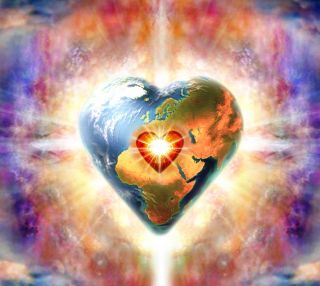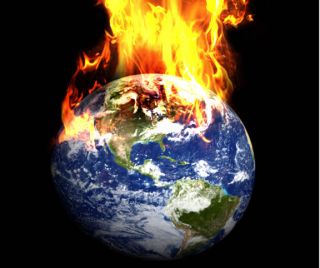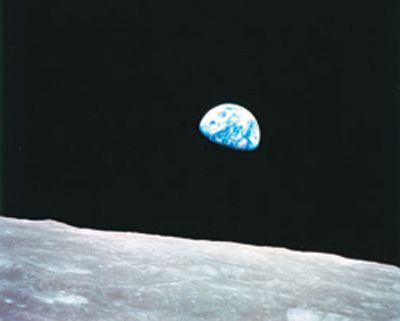"The time has come, the Walrus said, To talk of many things: Of shoes and ships—and sealing-wax—of cabbages and kings. And why the sea is boiling hot, and whether pigs have wings." ~Lewis Caroll

Picture every momentous achievement in human history: agriculture, the invention of the printing press, building the pyramids, the library of Alexandria, walking on the moon, overcoming slavery and apartheid, Beethoven’s 9th symphony, Rosalind Franklin’s work in the discovery of DNA, Eratosthenes reckoning that the Earth is round, the teachings of Jesus, Buddha, Gandhi, Martin Luther King, Jr., all the works of Shakespeare, Jane Goodall’s transforming our understanding of our own humanity. Beer making. Cats. Dogs.
And thousands more.
Now picture every momentous occasion of your personal history: Your birth, your childhood, your first love, how you were educated, the birth of any children, your life’s work, your family, who you will grow old with. Your most sacred lovemaking. Your joys, your sorrows. The most beautiful sunrise. A flash of grace as scarlet leaves shiver in autumn.
And thousands more.
Every single thing you can imagine about human civilization took place in the last ten thousand years. An era we know as the Holocene. All of human civilization arose during the Holocene and its relative climatic steadiness...the summer of climate stability. The climate was so favorable, that civilization arose numerous times in disparate places. There were a few climatic bumps that impacted certain cultures, some fared worse than others. One such bump, the Little Ice Age, lasted for a few hundred years in the northern hemisphere just before the Industrial Revolution. But these bumps did not threaten civilization.
Civilization as we know it did not arise earlier, not because we weren't smart enough, but because humans were managing the Great Ice Ages. But even then, way before civilization and during the time that modern humans evolved, the climate—though it fluctuated and varied and forced human innovation and response—was relatively steady…all the way back to 2.5 million years ago. During our early prehistory (the Pleistocene), early humans figured out how to survive and migrate during Icehouse Earth conditions. And despite the Pleistocene's Ice, and the many and varied climatic shifts during the rise of humanity over the last two-and-a-half million years, our atmosphere held essentially steady in terms of the mixture of gases it contained.
Our humanity is singularly, absolutely governed by Earth’s recent climatic steadiness. Throughout the Holocene carbon dioxide levels held around 280 ppm. And before that, all the way back to 2.5 million years ago, they held between 100 and 300 ppm. Steady. For nearly three million years.
This past summer, Earth’s carbon dioxide levels shot over 400 ppm. And they’re still rising. Geologically speaking, that rise is happening Very Fast. We have left the Holocene behind and are entering the Anthropocene: we’ve made our own geological era. What’s more, the last time Earth saw this level of carbon dioxide in the atmosphere, things were very different on this planet...and there were no humans.
The time has come, The People said, to speak of many things. Of shoes (consumption) and ships (carbon emissions) and sailing-wax (simplicity) and cabbages (food systems) and kings (the patriarchy and corporate power). And why the sea is boiling hot (self-evident). And whether pigs have wings (climate change denial).
Dearth, as defined in Wiktionary, means scarcity: a lack or short supply. It also means a period or condition of scarcity, such as in famine. “Dearth” arose as early as the 1400’s and in Middle English it derives from “dear:” that which is precious, honorable, valuable, loved, worthy. Dearth, then, is a lack of what is dear.
The Earth as we know it, have known it, and wish to know it, may be the dearest thing humans have. Earth has nurtured and sustained humanity in the most profound, central role possible…without Earth’s relative dependability—the overarching geologic steadiness we evolved in—humans as we know ourselves to be, would not be here.

And now. And now…That steadiness may be going up in smoke. All we hold dear is at risk. Every single thing. And billions more. In our lifetimes. Our children face something no human, in all the history of humanity, has ever faced. There is no way to understate the gravity of what is unfolding on our planet, right now, as a result of carbon emissions. Emissions that result from the corporate, colonial culture that allowed and continues to emit them in almost every major system we’ve erected to “sustain” us. Even Bill McKibben—the trailblazing leader who lives each day to help us awaken to this urgency—struggles for an apt metaphor. His best effort? Climate change is like an asteroid. One we hurl at ourselves with our own two hands.
Now, in place of the steadiness of our history on Earth, we see dearth everywhere. We see it in rising sea levels, in catastrophic storms (even as I write, we are grappling as a global society to wrap our minds around what Haiyan did to the Philippines), in massive desertification and loss of the world’s forests and rainforests, in the collapse of world fisheries and ocean acidification, in the 6th mass extinction of species, in rising levels of violence and war, in global and rising extremes of poverty (including inequality in climate impacts on the world's most poor) and the human population explosion, and in the emerging stress and denial responses that classically define one of the human psychological responses to trauma. There’s no doubt anymore that what we face—the world’s vast upheaval—can be traumatic. It’s no wonder that smart, caring people turn away. Or that some are beginning to realize that "This may be the most psychologically trying time in all of human history."
How do we face the trauma and fix the problems? The answer is one and the same, and in it rests the heart of humanity: Learn, love, take action, and rejuvenate.
Mary Pipher, psychologist and best-selling author (Reviving Ophelia and others), writes in her most recent and perhaps her most important book (perhaps, in fact, one of the most important books) The Green Boat: Reviving Ourselves in Our Capsized Culture:
"In our tempestuous times, we can be vibrant, authentic, and emotionally healthy people. In the context of our global storm, the *new healthy normal* requires the ability to move from awareness to action on a regular basis, to maintain a sense of balance, and to live intentionally. It also requires a particular kind of optimism, a connection to a community, and a world-class set of stress-reduction skills. Implied in the term "new healthy normal" is my assumption that it is not mentally healthy to sit idly by while the human race destroys its mother ship.”
“We can acquire the skills we need to overcome our sense of doom, and discover our capacities for transcendent coping.”
The time has come to rise up. We know far more than we need to act, the evidence and the solutions are everywhere. They need only to be accepted, and seized upon: locally and globally. This is the moment, right now; this one is the one that will decide everything. Whether we solve the biggest challenge we’ve ever faced, or not. And everything we hold dear is at stake.
“When I was a child, I spoke as a child, I understood as a child, I thought as a child; but when I became a man, I put away childish things.” (1 Corinthians, 13) We can keep our childish beliefs—that our lack of engagement doesn’t matter, that a dearth of our informed awareness doesn’t matter, that we can continue in the status quo and everything will be fine. Or we can shed our cultural childhood, embrace the power of our agency, and find the huge joy available to us when we engage and effect the changes necessary to honor all we hold dear.
Ask not what your planet can do for you, but what you can do for your planet. And together we’ll turn Mother D-earth to Mothered Earth.
Together on our pale blue dot. Home.

Join the Mothering Nature conversation on Facebook and Twitter, and unleash your epic force for harmony on Earth.
© Rachel Clark. Reprint with the specific permission of the author.
A note on comments: I read and dearly appreciate every comment. I rarely respond in honor of devoting my time to writing, family, and community. Your comments are important to me, and may inspire future posts. Also, in respect to gold-standard science, I follow the policy of the LA Times and Popular Science (as further explained at CBSNews.com) and refuse climate-change denial comments.




